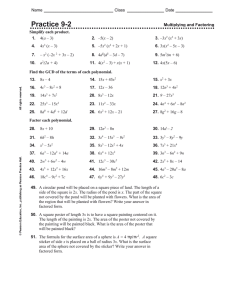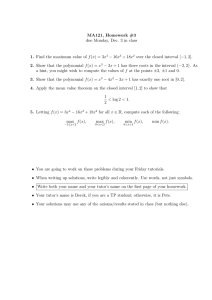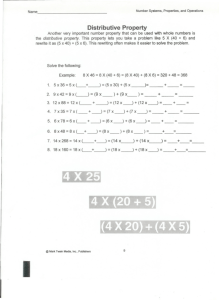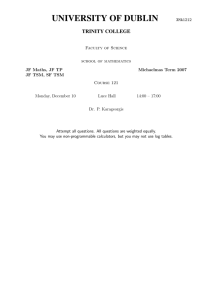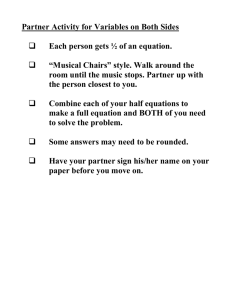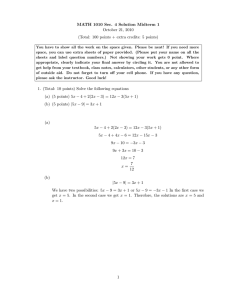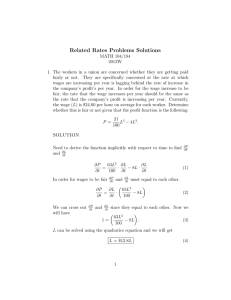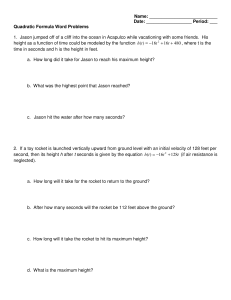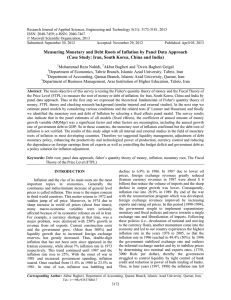Name: Math 110-003 Student number: Quiz 2 (Feb 4)
advertisement
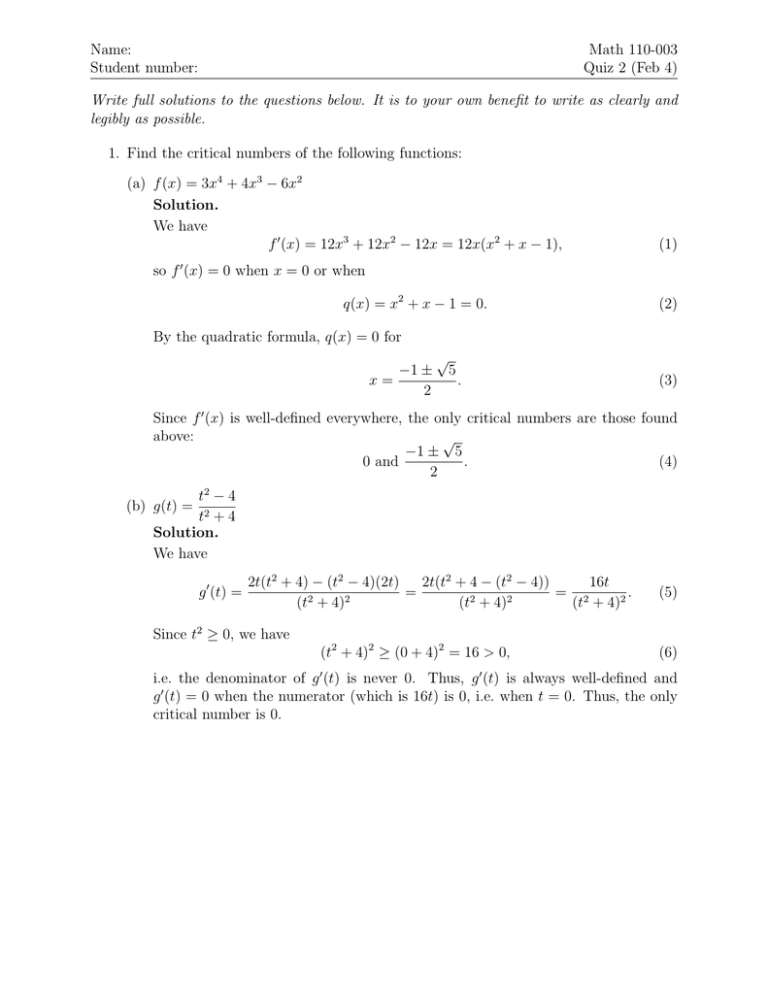
Name: Student number: Math 110-003 Quiz 2 (Feb 4) Write full solutions to the questions below. It is to your own benefit to write as clearly and legibly as possible. 1. Find the critical numbers of the following functions: (a) f (x) = 3x4 + 4x3 − 6x2 Solution. We have f 0 (x) = 12x3 + 12x2 − 12x = 12x(x2 + x − 1), (1) so f 0 (x) = 0 when x = 0 or when q(x) = x2 + x − 1 = 0. (2) By the quadratic formula, q(x) = 0 for −1 ± x= 2 √ 5 . (3) Since f 0 (x) is well-defined everywhere, the only critical numbers are those found above: √ −1 ± 5 . (4) 0 and 2 t2 − 4 t2 + 4 Solution. We have (b) g(t) = g 0 (t) = 2t(t2 + 4 − (t2 − 4)) 16t 2t(t2 + 4) − (t2 − 4)(2t) = = . (t2 + 4)2 (t2 + 4)2 (t2 + 4)2 (5) Since t2 ≥ 0, we have (t2 + 4)2 ≥ (0 + 4)2 = 16 > 0, (6) i.e. the denominator of g 0 (t) is never 0. Thus, g 0 (t) is always well-defined and g 0 (t) = 0 when the numerator (which is 16t) is 0, i.e. when t = 0. Thus, the only critical number is 0. Name: Student number: Math 110-003 Quiz 2 (Feb 4) 2. Consider the function h(x) = 4x5 + x3 + 2x + 1 on the interval [0, 1]. (a) Solution. The function h(x) satisfies the hypotheses of the mean value theorem because it is continuous on [0, 1] and differentiable on (0, 1). (b) Show that there is a number c in (0, 1) such that h0 (c) = 7. Solution. By the mean value theorem (which holds by (a)), there is a number c in (0, 1) where h(1) − h(0) = 4 + 1 + 2 + 1 − 1 = 7. (7) h0 (c) = 1−0
